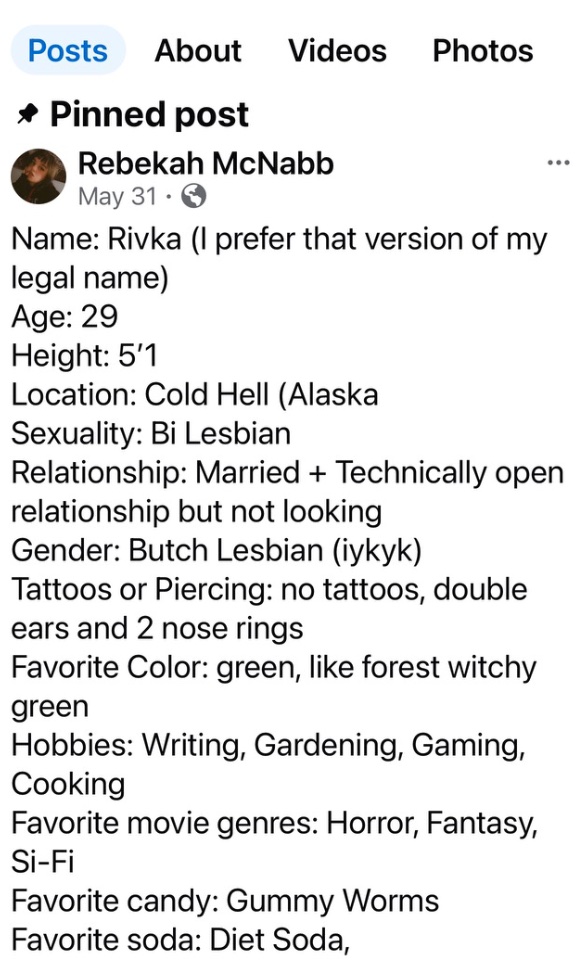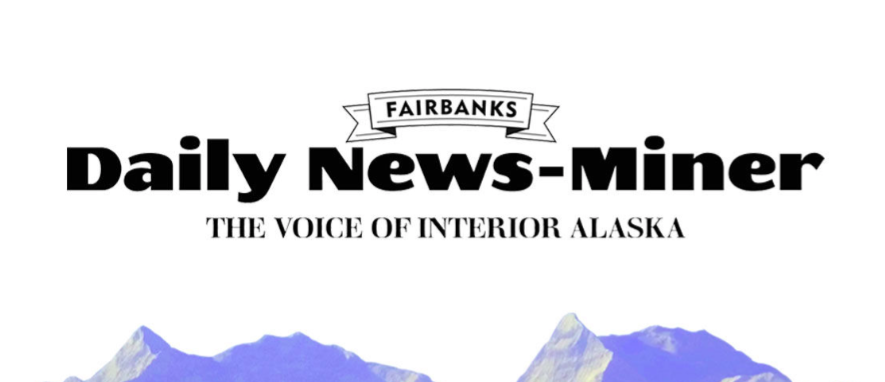A blistering and provocative opinion column published in the Fairbanks Daily News-Miner is drawing sharp criticism for its incendiary accusations and for the editorial judgment behind its publication.
The column, written by activist Rebekah McNabb and titled “Fairbanks fights fascism: The local life of an authoritarian project,” alleges that Gov. Mike Dunleavy and sitting Fairbanks North Star Borough Assemblywoman Barbara Haney are local enablers of a broader fascist movement in America.
McNabb’s piece calls for public protest at a Tuesday Chamber of Commerce luncheon where Dunleavy is scheduled to speak, an event that is supported by Haney.
“This is not business as usual. This is a warning,” McNabb writes in the closing line of the piece, which encourages a demonstration at 10th Avenue and Noble Street during the event.
What sparks concern, however, is McNabb’s unrestrained language, particularly the direct characterization of Haney as a promoter of fascist ideology, and Dunleavy as a “regional manager” of authoritarianism.
“Haney, for example, represents what Ruth Ben-Ghiat calls the ‘authoritarian capture of democratic institutions,’” McNabb asserts, adding that Haney “wraps fascist ideology in the language of community values, economic efficiency, and parental rights … that obscure how deeply exclusionary and violent her politics actually are.”
Haney may have a solid defamation case against the newspaper for allowing such characterization of her.
McNabb goes on to describe Gov. Dunleavy as “what happens when Trumpism is given the tools of the state and the cover of rural respectability,” accusing his administration of “attacks on LGBTQ+ rights,” “undermining tribal sovereignty,” and “handing over… control to corporate interests.”


The McNabb column goes further, portraying the Chamber of Commerce’s invitation to Dunleavy as an endorsement of “hierarchy, austerity, and carceral control.” McNabb argues “Civic institutions like chambers of commerce have long played roles in soft-authoritarian movements, providing legitimacy to violent policies under the guise of ‘economic development’ and ‘leadership.’”
Such sweeping allegations, presented without substantiating evidence, are defamatory insinuations against public officials and civic organizations. The column may have crossed the line from opinion into libel, especially in its treatment of Assemblywoman Haney.
Haney, a conservative member of the borough assembly, has not publicly responded to the column, but people close to her campaign expressed disbelief over the newspaper’s decision to publish what they called a “baseless, defamatory, and inflammatory attack.”
“It’s one thing to disagree on policy,” said a conservative activist in Fairbanks. “It’s another thing to accuse your political opponents of enabling fascism. That’s a charge that goes way beyond the pale and strains the expectation of civil discourse.”
The News-Miner, a mainstream news source for Interior Alaska, has taken a hard turn to the left in the past decade.
“Publishing this column is not an act of neutrality,” said another Fairbanks resident. “It’s an act of defamation cloaked as commentary. It’s deeply irresponsible.”
McNabb, who identifies in the column as a “disabled activist in Alaska” and writes under the pen name “Anarchist Jew,” and appears to be a self-published commentator on Substack.
The column’s call to protest specifically targets a luncheon hosted by the Greater Fairbanks Chamber of Commerce, scheduled for 11:30 am to 1:30 pm on Tuesday. According to McNabb, the goal of the protest is to be “louder than the lie.”
But while peaceful protest is a protected right, the broader implications of labeling elected officials and civic institutions as part of a fascist network raise questions not only about political discourse, but about the role of editorial oversight in Alaska’s Interior newspaper.
As the 2026 campaign season heats up, the media’s editorial decisions, and the limits of political commentary allowed to smear across their pages, will very much be part of the public conversation.
